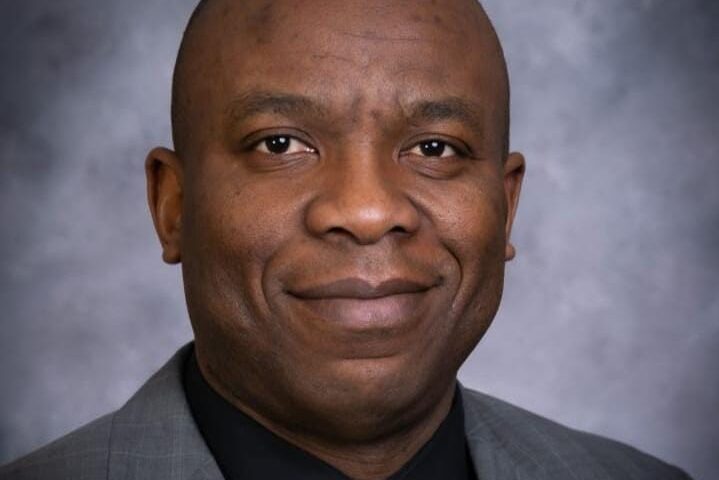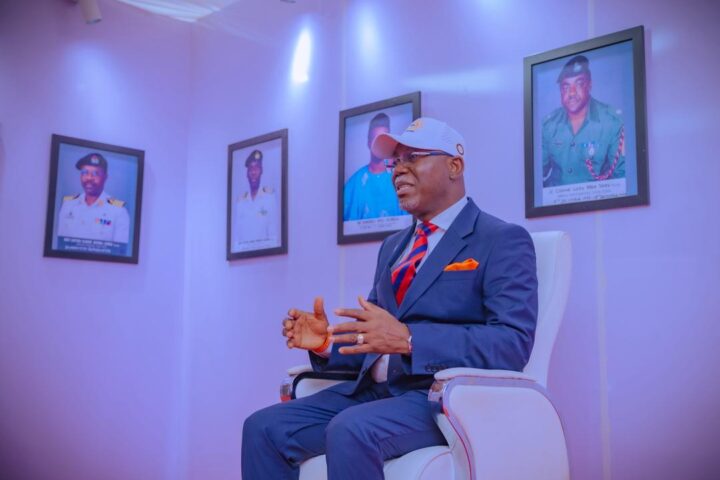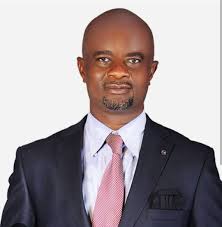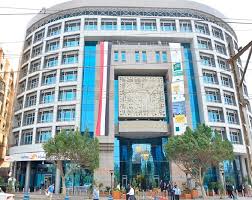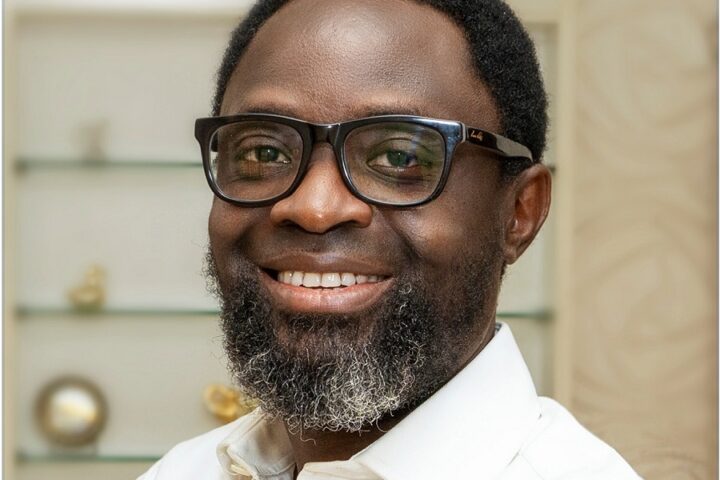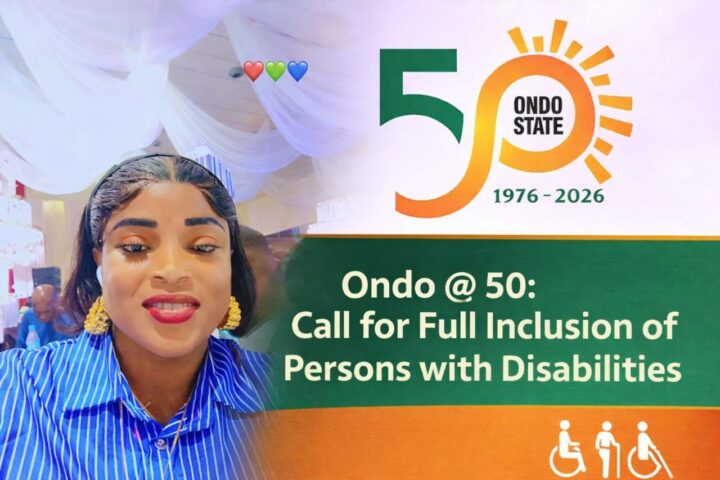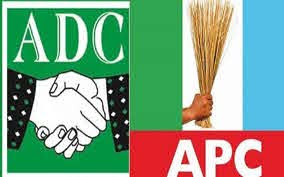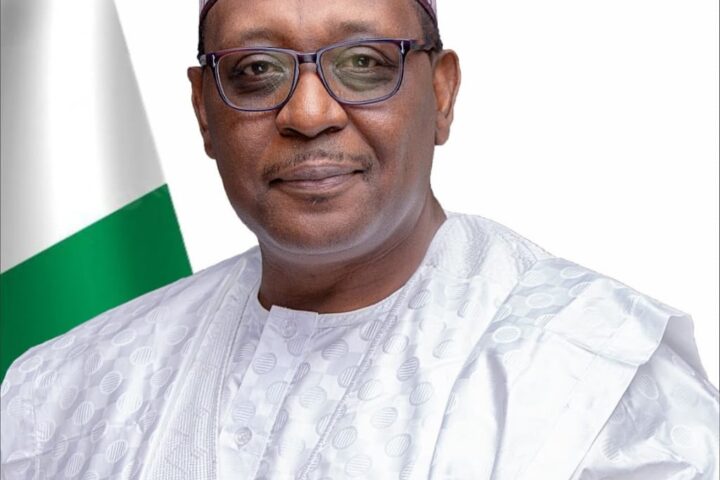 My profound gratitude to ‘Prof Olorode at 80 Organising Committee’ for giving us the platform to celebrate Prof. Olorode, while he is still alive.
My profound gratitude to ‘Prof Olorode at 80 Organising Committee’ for giving us the platform to celebrate Prof. Olorode, while he is still alive.
In celebrating Prof Olorode at 80, I think it is best to define his lifetime, so far, from the point of view of the qualities of a leader. I found the following definition of a leader in a paper whose author I will disclose only after the quotation of the definition of a leader from the paper.
The paper says, in part:
Leaders are best cloned inside organisations and movements as we have observed in the evolution of Nigeria’s nationalist movement. This is because building an organisation builds and tests our capacity for courage, solidarity, commitment to the collective, empathy and faith in policies collectively articulated. Good leaders grow or emerge from the ranks of organisations, not people who suddenly corner large sums of money and then impose themselves or their communities or impose their limited liability campaign organisations on their parties which are themselves trading associations.
In our particular situation of deep social and moral crisis, leaders need courage to confront established but rotten paradigms, courage to show solidarity with beleaguered associates and colleagues. …
A leader is a seeker of knowledge and truth. He must develop his intellectual power. She/he must question everything. A leader must be patient with alternative, even hostile, views. She/he must read everything that comes his way about his community, his country and the entire world as it unfolds.
A leader must be passionately committed to the cause of ordinary people. He/she must be immersed in their struggles, their culture, their aspirations, the language they speak, their vision of a better world! In doing this a leader must be a servant; he must be modest in his personal aspirations, how and where he lives, even how he/she dresses!
A leader must have faith in the people and their capacity to articulate their own interests, defend those interests and change their own situation for the better. Good leadership is incompatible with personality cult and vain glory’’
In my opinion, the foregoing listed qualities of a leader define the life of Prof. Olorode and the quotation is from one of his works, Leadership in Ogbomosoland: Past, Present, and Future: Contextualising Local Leadership in Nigeria’s History and Development[1]
What the quotation above tells me is that Prof. Olorode has formulated, quite early in his life, a life-focus and commitment that serve as a signpost for his sojourn on mother earth. And he has lived faithfully by the self-imposed injunctions of a leader. The life of Olorode epitomizes all the qualities mentioned in the quotation.
I am in a position to assert that the qualities of a leader as defined in the quotation above represent the practical essence of lived (not preached) lifestyle of Olorode because I have had a general political relationship with him since the late ‘70s while I have had very close working relationships with him since the early ‘80s, as the recollections in this short tribute, would demonstrate.
As a student in the late ‘70s, I derived inspiration from Prof Olorode and others such as Prof. G. G. Darah in the Ife Collective. We were always looking forward to their publication, ‘Socialist Forum”. The opportunity I had to know Prof Olorode, Idowu Awopetu, Dr. Dipo Fasina and others was made possible through the rare opportunity I had to learn the ABC of Marxism under the late Comrade Ola Oni who had political working relationships with other Marxian scholars and activists all over the country.
From 1982 when I was deployed to the Nigeria Labour Congress, Ondo State Council for my NYSC programme, up till 1986 when I was the Education Officer of the Nigeria Labour Congress at the National Headquarters, then in Lagos, I developed close working relationship with Prof Olorode. He was always ready to serve as a resource person in all the trade union education classes I was organizing. In those days, all resource persons, including Prof Olorode, gave their services pro bono. Not even transport allowance and hotel accommodation would be provided, whether in Akure or Lagos. Money was/is not the motivation for Prof Olorode where workers’ education was/is concerned.
I am aware that Prof. Olorode remains a constant factor and reliable ally of the NLC in the NLC’s education programmes – Rain and Harmattan Schools. Indeed, when he was not in a position to physically attend one of such education programmes, he contacted and requested me to stand in. A former staff of the NLC told me that ‘NLC’s positions on any national policies are never complete without inputs from the duo of Profs Olorode and Iyayi’. Apart from being involved in workers’ education programmes organized by trade unions, I am aware that Prof Olorode was constantly involved in regular workers’ education programmes of the Ife Collective, particularly for workers in Ile Ife and Osogbo, in the 1980s.
Travails of Olorode under military dictatorship
Prof Omotoye Olorode (as a person committed to collective struggles to stop the Nigerian ruling class from de-prioritising and commodifying education) came under severe attacks during military dictatorship era. He shared the pains of repression along with several other activists of the Academic Staff Union of Universities (ASUU) in various campuses all over the country.
On 2nd May 1990, Olorode and Idowu Awopetu were arrested by agents of the State Security Service (SSS) under Decree No. 2 of 1984. I captured the background to this particular travail of Olorode in 2003 publication[2], as follows:
A National Conference on the loan, organized by the AUT was held on 21st April 1990 when the abortive Orkar-led coup took place on 22 April 1990. The Babangida regime suspected that the ASUU had a hand in the abortive coup, given the coincidence of both the coup and the Conference. Hence, the clampdown on activists of the AUT. This was the background to the arrest of Olorode, Idowu and Ikime. They were not released until 1st August 1990.
As soon as they were released, their jobs became threatened. For example, on 31st August 1990, the then Minister of Education[3] wrote Olorode and Awopetu ‘requiring’ them to ‘compulsorily retire…in the public interest’[4]. They were also threatened with eviction from university accommodation.
Thanks to the role of the judiciary, the support of the mass of the students, the human rights community and the ASUU that gave a strike notice against the arbitrary sack, Olorode and Awopetu secured their jobs.
Perhaps, the role of the judiciary within the context of favourable public opinion, deserve to be highlighted. Ruling over the matter, Justice Moni Fafiade …ordered that the two lecturers be reinstated on the ground that the letters requiring them to retire were prima facie illegal[5].
In spite of the travails of arbitrary detention, Olorode and other academics refused to appear before the Oputa Panel constituted to investigate rights abuses under the Military. Prof Olorode seemed to have maintained the position that the travails and freedom of the individual are tied to the travails and freedom of the larger society. According to Olorode, in an interview I conducted with him:
… we think that beyond retelling the story afresh about the deprivations that Nigerians experienced in the past under authoritarian political orders, which serves some purposes, we think that generally, it was a waste of time because we did not believe that the Obasanjo crowd was really interested in any truth or justice. In fact, it became very clear that the whole Panel exercise was reduced to a huge but expensive joke in which the oppressor and the oppressed were being asked to embrace each other – and to give the false impression that the mere fact of two persons, symbolizing the two broad antagonistic classes, physically embracing each other has addressed the root or the cause of violence in society[6]!
PROF OLORODE AS A GRASSROOTS ORGANIZER
Prof Olorode is not just a Marxist scholar who advocates Marxism in theory. He is also a Marxist activist who leads by practical examples in organizing, mobilizing and resisting attacks, along with the working class, regardless of the consequences to his freedom and life. I would give just one example in this regard.
On Saturday, February 17, 2001, Prof Olorode joined forces with members of the National Conscience Party and trade unions in Osun State to protest the mass sack of workers under the Chief Bisi Akande Administration in the State. The protest was attacked by security agents. Prior to the protest, Late Chief Bola Ige, the then Minister of Justice, had publicly asked security forces to deal with the protesters ruthlessly if we dared to go ahead with the protests. The threats were prominently published in the newspapers. Prof Olorode and a few others from the Ife Collective boldly partook in the peaceful protests in spite of the threats. The Police gave effect to the order by the Minister. Many of the protesters sustained serious injuries in the process of unprecedented vicious brutalization I ever experienced. Some of us were arrested, detained at the State Criminal Investigation Department (C.I.D.), Aiyetoro, Osogbo, and charged to Court. We were set free by the Court with the services of the defence team led by the late Chief Gani Fawehinmi. Though he was not arrested, Prof. Olorode stood solidly behind us till the case was dismissed by the Court. Prof. Olorode did not abandon us.
PROF OMOTOYE OLORODE CARES
Prof Olorode cares. He is not just an advocate of Marxism as some scholars tend to limit their involvement. Olorode is a humanist; he is humane. He is not just concerned with the ultimate goal of mobilizing for change on a socialist basis, he cares for the wellbeing of workers and people around him while the change we advocate has not occurred. He cares about the welfare of ordinary workers with a view to giving them the courage to keep on their fighting spirit. He does this, not just as an individual, he does it within the organizational framework so that the workers involved would have the sense that whatever support given is collectively raised. The manner of generating support for striking workers is also such that involves the workers themselves collectively.
Sometime in August 2000, at the instance of Late Comrade Rufus Oyatoro, the central leader of the Osogbo Steel Rolling Mill workers, Prof Olorode and I agreed to form the ‘Support Committee For Osogbo Steel Rolling Company Workers’ (SCOSWORK) along with the leadership of the workers who had been sacked but were never paid their entitlement. Prof Olorode was the Chairman of SCOSWORK. I was the Secretary of the Committee. One of the measures and activities we took in campaigning for their reinstatement included organizing ‘Solidarity Symposium And Appeal Fund Launch’. A sample of one of the letters signed by Prof. Olorode is reproduced below:
21st August 2000
……………….
………………
Dear Sir/Ma,
APPEAL FOR DONATION
The Support Committee For Osogbo Steel Rolling Company Workers (SCOSWORK) was set up recently with the main goal of mobilising public support for the reinstatement of trade union leaders who were sacked over a year ago because they challenged corruption in the Company. In spite of a Court Order that the sacked workers be reinstated, the management of Osogbo Steel Rolling Company has refused to yield. The Committee needs funds for its day-to-day operations and strategic campaigns.
In particular, the Committee is planning a Solidarity Symposium And Appeal Fund Launch in support of the embattled workers.
We appeal to individuals and organisations that are sympathetic to the cause of the workers to give us financial support.
Whatever support extended to SCOSWORK should be seen as a support for forces fighting against corruption, arbitrariness, disregard for court orders and injustice in our country.
Thanks.
Yours faithfully,
Prof. Omotoye Olorode
Chairman, SCOSWORK
Another measure, which SCOSWORK took was to write the Minister of justice challenging the sack and compulsory retirement of the sorkers. Again, Prof Olorode signed the letter that follows:
21st August 2000
The Honourable Minister,
Ministry of Justice,
Abuja.
Dear Sir,
RE: PURPORTED RETIREMENT OF 87 WORKERS AND THE FLAGRANT DISREGARD FOR THE RULE OF LAW
We, on behalf of the staff of Osogbo Steel Rolling Company Limited, on behalf of the other purportedly retired members of staff of the aforesaid company, deem it extremely expedient to write your good offices with a view to intimating you with the untoward occurrences in the company.
Sir, we believe that it is more than fortuitous that the company, is under the Power and Steel Ministry you headed as the Minister and our major reason for writing you now falls squarely within the province of your new Ministry. It is divinely designed that a person of your calibre should be the Minister of Justice at a time like this. We, therefore, are confident that before long justice will be done.
Some workers were purportedly retired by the company acting on the instruction of Engr. Oguntomi who succeeded Dr. Adelakun as the General Manager. The first action taken by the new General Manager was to place seventy one members of staff on an indefinite suspension without adducing any reason for such an action. Six months later, twenty workers were recalled with the total exclusion of all the Union/Association leaders. We painstakingly waited for the report of the Kolade Panel and our subsequent recall to duty for a year without any positive response. This prompted the institution of a legal action at the Federal High Court, Osogbo on the 1st April, 1999 challenging the brazen acts of illegality perpetrated by the management.
While the case was still pending in court, the management, under Engr. Ayo Oguntomi, in utter contempt of the court, between 28th April and 6th May, 1999, purported to have retired the workers. As law- abiding citizens, we went back to court to challenge this obvious illegality. The court responded with an order issued at The Federal High Court, Osogbo on 22nd July, 1999 setting aside our retirement. Since this order was given, the management headed by Engr. Oguntomi, has bluntly refused to respect the court. This flagrant disregard for the rule of law was aided by the non-availability of a judge at The Federal High Court for a long time.
Consequently, we feel impelled to let your good offices know the plight of the workers. We are not asking for what is extra-ordinary. We simply crave the respect of those who have rule over us for the rule of law. Justice delayed is bound to be construed as a certain denial, however notional. We trust that you will come to our rescue as soon as possible as we are greatly distressed.
We look forward to hearing from you soon.
Yours faithfully,
Prof. Omotoye Olorode,
Chairman, SCOSWORK
OLORODE AS A PUBLIC INTELLECTUAL
Prof Olorode is a prolific writer. He writes with demonstrable understanding and mastery of many fields of study. Even though he is a scientist, (a Prof of Botany), he easily qualifies to be called an Economist, Industrial Relations expert, Historian, Political Scientist, Sociologist, legal scholar, etc, etc. Mr. Femi Falana, SAN, once asked me who among our comrades is an economist in the mould of late Prof. Bade Onimode and others, to undertake certain tasks for the Alliance on Surviving COVID-19 And Beyond (ASCAB). I replied that I was not aware of any but Prof Olorode could be considered to fill the vacuum.
I refer to only nine of his writings, to underscore the variety of his scope of writings, as a public intellectual, outside his core area as a scientist, which he has shared with me over time:
1. ‘Labour Relations in Economic Recession: An Appraisal (ND)[7]
2. ‘Minimum wage: Between Nigeria’s ruling class and working people” (ND)[8]
3. ‘Nigeria after the 2011 Elections: Problems and prospects for popular power’ (ND)[9].
4. ‘John Ejoha Odah in Context’(ND)[10]
5. ‘Building a virile Mass Movement in Nigeria: Prospects, Potentials and Strategy’ (ND)[11]
6. ‘The Humanistic Origins of “Modern” Science’[12]
7. ‘State of the Nigerian Nation Today’(ND) (Written at Workers’ Village, Gwagwalada,-FCT, Abuja.
8. ‘Education: Agenda for National Development’ (ND) (Written while in Department of Botany, Obafemi Awolowo University, Ile-Ife).
9. ‘Leadership in Ogbomosoland: Past, Present, and Future: Contextualising Local Leadership in Nigeria’s History and Development[13].
OLORODE: AN EDUCATOR AND ORGANIZER THROUGH SHARED WORKS NOT AUTHORED BY HIM
Prof Olorode shares materials he comes across among comrades with a view to updating them of ideas, facts, perspectives, development, etc, in order to promote discussions and facilitate shared interpretation and understanding. When he shares the works of others, it does not necessarily mean he agrees with the position in the paper. He may in fact be critical of them. His concerns in such situations are to warn of toxic ideas in circulation. He does this with religious commitment and regularity as if his entire life depends on it. This to me shows someone who appreciates the need to build forces for change, based on shared values. As he clearly puts it in one of his papers:
‘The task of re-launching the transformational process for our country is the task of gathering the pieces of that engine (the core), transforming it, and enlarging it.’[14] (NB: emphasis in bold is that of Prof Olorode).
I cite below just three of such papers in support of this identified attribute:
1. ‘The fate of NSA, Owoye Azazi’[15]
2. ‘Background to the recent Nigerian elections: General Obasanjo more than just a “friend” of the Americans’[16]
3. ‘Herdsmen Crisis: Intellectual Dishonesty?’[17]
After I read the 3rd listed paper, I sent my impression and assessment of the paper to Prof. Olorode. He replied on the 18th of April 2021 as follows:
‘I just thought I should avail you of the document. Your observations tally fully with my own perspectives’ on the paper.
OLORODE: A BUILDER OF SOCIAL MOVEMENTS/COALITION OF ORGANIZATIONS
Olorode has been an active leading participant in all efforts to build coalition forces for resistance for what he calls ‘liberation politics’. I know he was actively involved in the formation of the Free Femi Aborisade Campaign Committee which later transformed into the Committee for Defence of Human Rights (CDHR) after my release from detention in 1989. The CDHR was led by the late Dr. Beko Ransome-Kuti. Olorode was also deeply involved in the formation and work of the Labour Party in 1989. He was equally involved in the National Consultative Forum (NCF) led by Alao Aka-Bashorun, Campaign for Democracy(CD) led by Dr. Beko Ransome Kuti and the Joint Action Committee of Nigeria (JACON) led by Chief Gani Fawehinmi.
The Joint Action Committee of Nigeria (JACON) was formed on April 29, 1998 as a coalition of several organizations mobilizing against continued military dictatorship. The National Democratic Coalition (NADECO) was one of JACON’s affiliates. On August 5, 1998, Prof Olorode, representing the Ife Collective in JACON, was unanimously elected as the National Vice Chairman with responsibility for Education and Research. Thus, along with other officers, he was deeply involved in drafting JACON’s policy documents and publications. As at 6th July 1998, JACON consisted of 61 autonomous organizations. The membership cut across Nigeria and included a few organizations formed by Nigerians living abroad. When Chief Gani Fawehinmi resigned as National Chairman of JACON, Prof Olorode was elected to assume the position of National Chairman. He held this position until we resolved to wound up JACON after the transition to civil rule in 1999. I was the National General Secretary of JACON under both Chief Gani Fawehinmi and Prof. Olorode.
Along with Prof.Olorode, JACON formulated a position of immediate termination of military dictatorship, formation of a Government of National Unity under Chief MKO Abiola and subsequent organization of a Sovereign National Conference (SNC) to restructure Nigeria. After Abiola was killed in detention on 7th July 1998, JACON revised its position and called on Nigerians to reject the Abdulsalami Abubakar Transition Programme and insist on a Government of National Unity composed of six elected persons, one representing each of the six geopolitical zones with the only mandate to convoke a SNC such that military dictatorship did not go beyond 1st October 1998. However, some member organizations of JACON, particularly those organizations populated by conventional politicians rejected JACON’s position and accepted to participate in the General Abdulsalami Transition Programme, even when the Constitution they would operate was not yet known. Prof. Omotoye Olorode never for once betrayed collectively worked out the position of JACON. Absolute loyalty to organisational positions, in the best interest of the masses is an exceptional quality of Prof. Olorode,
I know Prof Olorode is a leading member of SCON – Socialist Congress of Nigeria – and Liberation Party of Nigeria (LIP). Though he was never a member of the National Conscience Party (NCP), he was always ready to collaborate with the NCP in all its activities, particularly during the lifetime of Chief Gani Fawehinmi. Prof Olorode was responsible for the translation of many documents of the NCP into Yoruba language, and pro bono.
Prof Olorode is also a member of the Interim Coordinating Committee of the Alliance on Surviving CoVID-19 And Beyond (ASCAB) led by Femi Falana, SAN, at the national level. Olorode is the Chair of ASCAB, Oyo State Chapter. ASCAB, at the national level, consists of about 72 affiliate organizations.
Under the Prof Olorode-led Political subcommittee, ASCAB initiated a political Summit of left leaning, radical orgnisations, which has given birth to The Peoples Alternative Political Movement (TPAPM) to build a mass-based political party of the working masses with the vision of “a socialist Nigeria is possible”. The TPAPM looks forward to working with the Labour Party, other mass based political organizations of the left as well as organized labour. The influence and hard work of Prof Olorode have contributed to this latest development in which the small forces of socialism fragmented in several organizations are beginning to work together to impact their world.
What the foregoing organizational involvements of Prof. Olorode tell us is that he is not sectarian in approach and he does not seek vain self glorification or even recognition. He is ever ready to collaborate with any organization engaged in the task of organizing ordinary people for economic or political freedom. Unlike the trend represented by some other categories of persons who would be involved in any activity only if the banner of their organization would be captured by the press with which they may raise funds abroad, Olorode is ever ready to work anonymously, just as he is ever ready to accept leadership responsibility.
It is gratifying to note that in spite of the challenges facing the broad left movement, the enthusiasm and confidence of Prof Olorode in the possibility of socialist change in Nigeria, through the conscious self activities of the masses, are rising by the day, rather than diminishing. We thank Prof Olorode for giving us hope and for being an inspiring signpost and positive advertisement for collective struggle, collective resistance and collective hope in the possibility of a socialist future for Nigeria and by extension, the world.
Congratulations, Prof. Omotoye Olorode!
Yours is a life of dedicated service to the working masses!
Femi Aborisade
[1] Invited Paper presented on January 15, 2010 at the Ogbomoso Stakeholders’ Forum Lecture in Remembrance of the Assassination of Chief Samuel Ladoke Akintola on January 15, 1966.
[2] F. Aborisade (2003) ‘Academics and Human Rights Violations in Nigeria: What the media, Oputa Panel and the World Ignored’ in A. Adeoye (2003) Hope From Nightmares. Lagos: Journalists for Democratic Rights (pp. 207-250)
[3] The then Minister of Education was Prof. Aliu Babatunde Fafunwa.
[4] The two lecturers were asked to compulsorily retire with effect from 1st September 1990. The letters were issued pursuant to the Public Officers (Special Provisions) Decree No. 17 of 1984.
[5] F. Aborisade (2003) ‘Academics and Human Rights Violations in Nigeria: What the media, Oputa Panel and the World Ignored’ in A. Adeoye (op. cit), pp. 226-227.
[6] F. Aborisade (2003) ‘Academics and Human Rights Violations in Nigeria: What the media, Oputa Panel and the World Ignored’ in A. Adeoye (ibid.), p. 212.
[7] A 2017 pre-May Day Lecture written while in the Dept of Plant Science, Olabisi Onabanjo University, Ago-Iwoye. Nigeria.
[8] Written when he was at the Department of Biological Sciences, University of Abuja, Abuja. FCT.
[9] Written when he was at the Department of Biological Sciences, University of Abuja, Abuja. FCT.
[10] Written when he was at the Department of Biological Sciences, University of Abuja, Abuja. FCT.
[11] Written when he was at the Department of Biological Sciences, University of Abuja, Abuja. FCT.
[12] Invited paper presented at the Institute of Cultural Studies, Obafemi Awolowo University, Ile-Ife in honour of Professor Idowu Awopetu on Wednesday November 25, 2015. (Written when he was at the Department of Plant Science and Applied Zoology, Olabisi Onabanjo University, Ago-Iwoye. Nigeria)
[13] Invited Paper presented on January 15, 2010 at the Ogbomoso Stakeholders’ Forum Lecture in Remembrance of the Assassination of Chief Samuel Ladoke Akintola on January 15, 1966. (Written when he was at the Department of Biological Sciences, University of Abuja, Abuja. F.C.T.
[14] ‘Nigeria after the 2011 Elections: Problems and prospects for popular power’
[15] By Dr. Aliyu U. Tilde (May 2012 01:01) found online at www.peoplesdaily-online.com/
[17] By Isaac Albert, University of Ibadan (Forwarded as a Whatsapp post on 17/4/2021).



